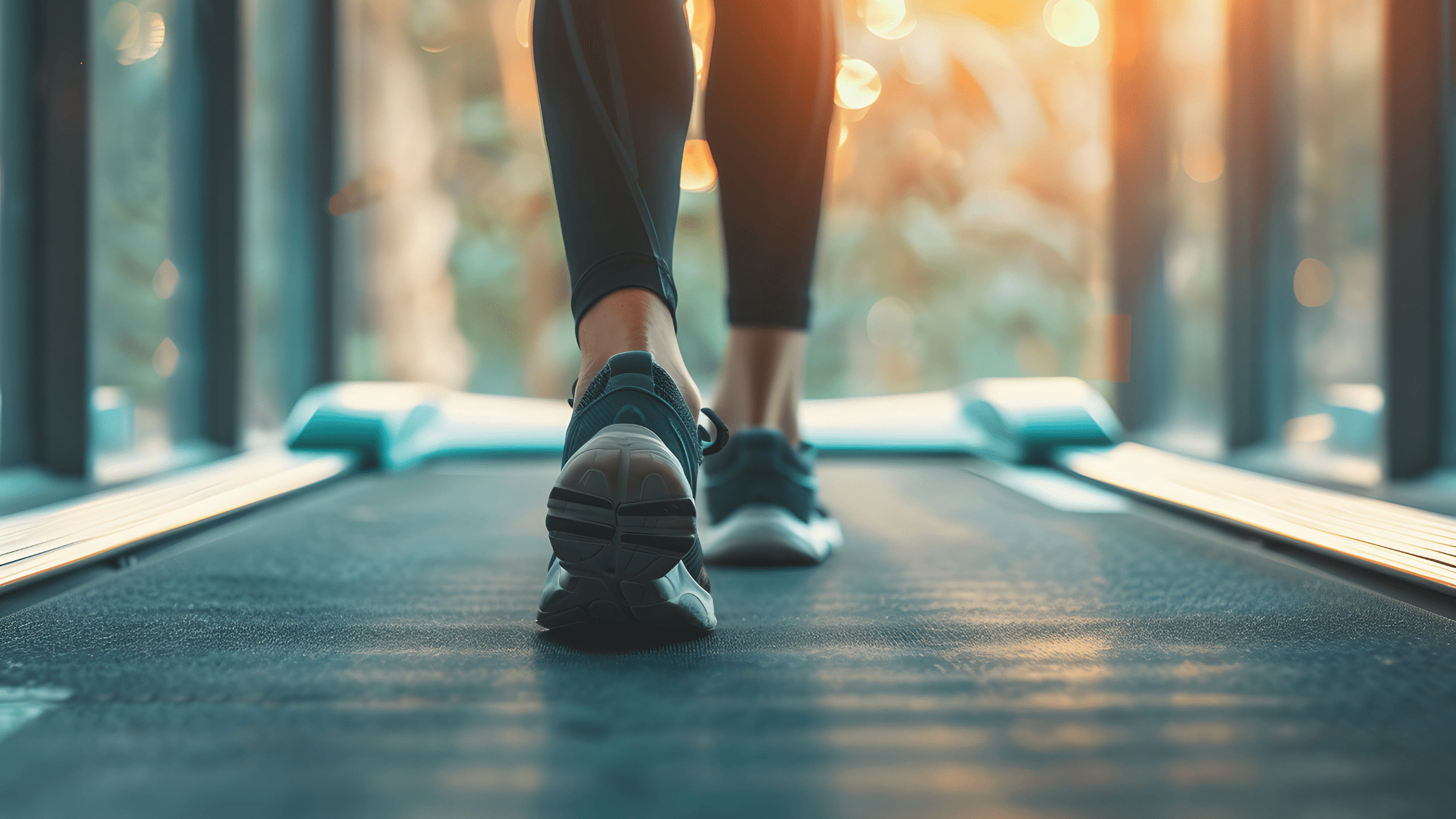Why Quality Sleep is Key to Your Fitness Journey
Ever wonder why you’re always told to “sleep well” before a big game or workout? The connection between sleep and fitness goes deeper than you might think. Quality sleep is not just a nice-to-have; it is a vital component of your fitness and overall health. Whether you’re an athlete, a fitness enthusiast, or someone keen on maintaining a healthy lifestyle, understanding the role of sleep can significantly enhance your performance and recovery.
The Science of Sleep and Recovery
Sleep Stages
Sleep is not a monolithic state but comprises different stages, each with its unique role in recovery and restoration. Non-rapid Eye Movement (NREM) sleep consists of three stages, progressing from light to deep sleep, while Rapid Eye Movement (REM) sleep is where most dreaming occurs. Each stage is crucial:
- Stage 1 (NREM): This light sleep phase helps transition the body from wakefulness to deeper sleep.
- Stage 2 (NREM): Slightly deeper, this stage involves reducing heart rate and body temperature.
- Stage 3 (NREM): Known as deep sleep or slow-wave sleep, it is essential for physical recovery, muscle growth, and immune function.
- REM: This stage, characterized by rapid eye movements, increased brain activity, and dreaming, is vital for cognitive functions such as memory consolidation and learning.
The Sleep Cycle
A typical sleep cycle lasts approximately 90 minutes and includes all stages of sleep. Adults usually go through four to six cycles per night. Disrupted sleep cycles can lead to insufficient time in the restorative stages, impairing overall recovery and performance. Consistent, uninterrupted sleep ensures that you complete several sleep cycles, maximizing the benefits for your mind and body.
The Impact of Sleep on Fitness
Muscle Recovery and Growth
Sleep plays a pivotal role in muscle repair and growth. During deep sleep, the body releases growth hormones that facilitate protein synthesis, enhancing muscle recovery. Without adequate sleep, these processes are disrupted, leading to slower recovery and diminished muscle growth. For athletes and fitness enthusiasts, this can translate to longer recovery times and decreased performance.
Cognitive Function and Mental Health
Quality sleep is essential for maintaining focus, motivation, and mental clarity. Lack of sleep can impair cognitive functions, making it harder to concentrate and stay motivated. Additionally, poor sleep is linked to increased stress and anxiety, which can further hinder performance. Prioritizing sleep helps keep your mind sharp and your mood stable, allowing you to perform at your best.
Immune System Support
Adequate sleep strengthens the immune system by promoting the production of cytokines, which help fight infections and inflammation. Sleep deprivation, on the other hand, weakens the immune response, making you more susceptible to illness and slower to recover from injuries. Ensuring you get enough sleep is crucial for maintaining a robust immune system.
Common Sleep Disruptors and How to Avoid Them
Stress and Anxiety
Stress and anxiety are common culprits behind poor sleep quality. The mind races, making it difficult to relax and fall asleep. To manage stress before bedtime, consider incorporating relaxation techniques such as deep breathing exercises, meditation, or journaling. Establishing a pre-sleep routine can help signal to your body that it’s time to wind down.
Screen Time and Blue Light Exposure
Excessive screen time, especially before bed, can significantly impact sleep quality. Screens emit blue light, which inhibits melatonin production, the hormone responsible for regulating sleep. To combat this, try reducing screen time an hour before bed or using blue light filters on your devices. Reading a book or listening to calming music can be excellent alternatives.
Diet and Caffeine
What you eat and drink in the hours before bedtime can affect your sleep. Consuming caffeine late in the day can interfere with falling asleep, while heavy or spicy meals can cause discomfort. Aim to have your last meal at least two to three hours before bedtime and limit caffeine intake after lunch. Opt for light, sleep-promoting snacks if you get hungry in the evening.
Tips for Improving Sleep Quality
Establishing a Sleep Routine
Consistency is key to good sleep. Going to bed and waking up at the same time every day helps regulate your internal clock. Create a relaxing pre-sleep routine to signal to your body that it’s time to unwind. This could include reading, taking a warm bath, or practicing mindfulness exercises.
Optimizing Your Sleep Environment
Your sleep environment plays a crucial role in the quality of your rest. Ensure your bedroom is cool, quiet, and dark. Investing in a quality mattress and pillows tailored to your preferences can make a significant difference. Consider using blackout curtains, earplugs, or white noise machines to create an optimal sleep space.
Relaxation Techniques
Incorporating relaxation techniques into your nightly routine can help prepare your mind and body for sleep. Deep breathing exercises, meditation, and progressive muscle relaxation are effective methods. These practices can reduce stress levels and make it easier to fall asleep.
The Role of Nutrition in Sleep Quality
Sleep-Promoting Foods
Certain foods can promote better sleep by increasing the production of sleep-inducing hormones like melatonin and serotonin. Foods rich in tryptophan, such as turkey, nuts, and seeds, can be particularly beneficial. Whole grains, dairy products, and fruits like bananas and cherries also support sleep. Consider incorporating these foods into your evening meals or as bedtime snacks.
Hydration and Sleep
Staying hydrated is essential, but consuming large amounts of fluids before bed can disrupt sleep with frequent trips to the bathroom. Aim to stay well-hydrated throughout the day and reduce fluid intake in the hours leading up to bedtime. This balance will help you stay hydrated without interrupting your sleep.
The Importance of Timing in Sleep
Understanding Your Chronotype
Your chronotype is your natural sleep-wake cycle, influenced by genetic and environmental factors. Understanding whether you’re an early bird or a night owl can help you align your schedule for optimal rest. Tailoring your sleep habits to your chronotype can enhance both the quality and quantity of your sleep.
The Power of Napping
Short naps can be a powerful tool for recovery and mental clarity. A 20-30-minute nap can help recharge your energy levels without interfering with nighttime sleep. However, avoid napping too late in the day to ensure it doesn’t disrupt your regular sleep cycle.
Tracking and Improving Your Sleep
Sleep Tracking Tools
Using sleep-tracking apps or devices can provide valuable insights into your sleep patterns. Tools like Fitbit, Apple Watch, and various smartphone apps monitor sleep stages, duration, and quality. Analyzing this data can help you identify areas for improvement and adjust your habits accordingly.
Setting Sleep Goals
Setting realistic sleep goals is essential for gradually improving your sleep duration and quality. Aim for the recommended 7-9 hours of sleep per night and make incremental changes to achieve this target. Celebrate small victories along the way to stay motivated.
Tips for improving sleep IRL
Prioritizing sleep is crucial for enhancing your overall health, fitness, and well-being. By understanding the science of sleep, addressing common disruptors, and implementing practical tips, you can significantly improve your rest and recovery. Remember, quality sleep is not a luxury—it’s a necessity for achieving your fitness goals and maintaining a healthy lifestyle. Implement these strategies today and experience the long-term benefits of better sleep. For more insights and personalized advice, explore our additional resources and join our community of health-conscious individuals committed to optimizing their sleep and fitness.


